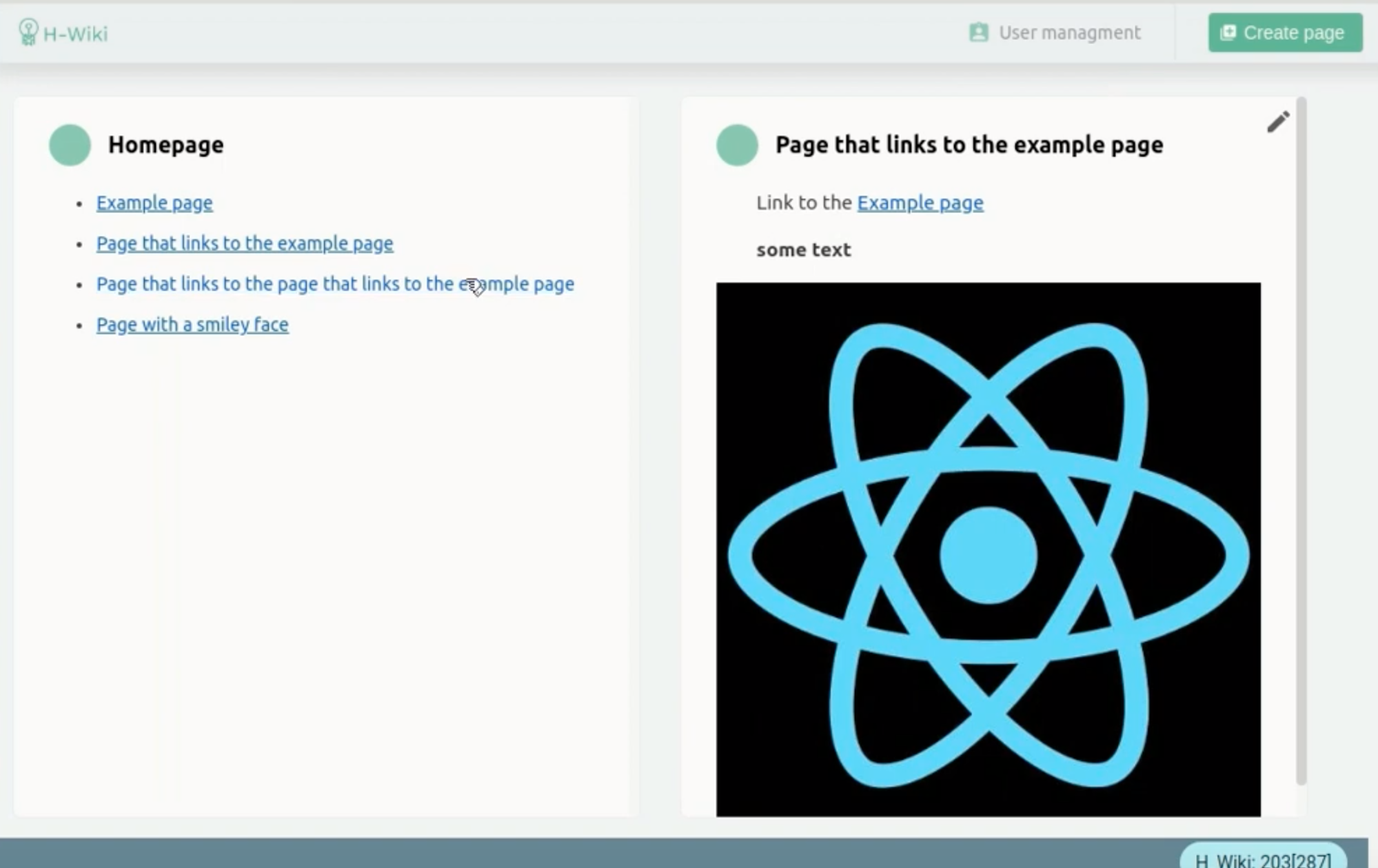What is a Wiki?
A wiki is a collectively-built and owned knowledge base that allows for users to edit, correct and add information. Wikis are meant to be accessible and editable by their users to provide meaningful associations through searchable linked pages.

How is a Wiki running on Holochain different?
Within a Holochain application like H-Wiki, people can fully own their knowledge bases without the support of IT experts. Wikis enable communities to organically produce and organize knowledge for themselves.
On Holochain, a Wiki becomes even more organic and community-sourced. People can physically host their content using their own devices and control how their knowledge is stored, used and shared.
“The primary differential of H-Wiki lays in the ownership and control of the data, all the way to the storage and distribution of it”, explains Eduardo Moreira, who leads the EYSS team that developed the H-Wiki prototype.
With H-Wiki not only knowledge generation is fully distributed, but storage too. There is no longer a need for an intermediary organization to host a community's knowledge base. This prevents not only data exploitation, but also the banalization of privacy breaches.
Data Ownership in the next Net
The Internet, as we know it, is changing. “Holochain will boost community based projects, in particular those concerned with data ownership and consent”, points out Eduardo Moreira.
Imagine a scenario where first-nations or any community can have full ownership of their knowledge and traditions, storing and distributing their data in their own terms. Ultimately they will be able to determine what is stored where, by whom, and for how long they choose.
Contextualized Information
Recognizing where cultural knowledge originates is just one of the potentials the H-Wiki prototype opens up. The Holochain architecture can be a game changer in the world of Wikis. Not only knowledge bases can now be hosted locally and be much more resilient, but as the project matures users will be able to choose their preferred authors and customise their version of the Wiki on a truly agent centric experience.
Imagine that I am a farmer, in upstate New York, contributing to an agricultural H-Wiki, my information can hold more weight with folks in my region or in areas with similar ecologies. With Holochain functionalities, farmers in Pakistan using their agricultural H-Wiki would be able to assign higher value to their local knowledge on agriculture. The contributions from various locations would then mesh together to create a richer information base -- more complete because we know who and where the contributions come from.
The Holochain Ecosystem
“The H-Wiki prototype marks the beginning of our path towards an active open-source community. It is a vital tool for us to build a distributed community of contributors that can hold, share and create knowledge together”, explains Eric Bear, Holochain community manager.
As an open-source project, H-Wiki is built by the community for the community. “It opens an opportunity for us to model how we want to hold open-source projects that span time zones, cultures, borders and ways-of-knowing”, concludes Bear.
The Team

The H-Wiki prototype was kickstarted last January by Eduardo Moreira and the EYSS team in Venezuela. “Whenever we had to explain what Holochain is, the ideal example would always be a Wiki”, remembers Eduardo. The team settled on the project during a conversation with Arthur Brock, Holochain’s founder who also believed a Wiki would be one of the best applications to make use of Holochains functionalities. “There were too many alignments for us to ignore it”, says Eduardo Moreira.
“The biggest challenge we had to overcome was trailblazing Holochain’s new distributed technology without an established set of best practices”, explains Eduardo. At first the team chose an approach using links. “Arthur soon advised us to use anchors to ensure scalability and create a more elegant code base”, explains Eduardo. Anchors assist in finding targeted data by having predictable or discoverable bases to get_links from.
Soon after starting development the EYSS team partnered with Guillem Cordoba, one of the leading coders on the Holochain community. “Guillem’s guidance was fundamental in getting us to a functional prototype”, celebrates Eduardo. The front-end heavy lifting was held by Jonathan Alexander Hernandez and Héctor D. Vasquez Rivas from EYSS, whilst the Holochain anchors library was the work of Philip Beadle and Tom Gowan, of the Holochain team in Australia.
All this support was the result of two years of hard work by the EYSS team within the Holochain developers community.
To learn more about EYSS, visit their website or talk to them on the Holochain Forum!
Why should I care?
Wikis themselves are radical tools for communities to share and learn collectively. H-Wiki goes even further, enabling richer information context tailored with an agent-centric computing model.
“Holochain weaved three technologies that have been around for quite some time into a strong fabric”, explains Eduardo. The combination of peer-to-peer technology with distributed-hash-tables and cryptographic keys is setting the stage for a different game.
Knowledge held in a H-Wiki will be easy for non-technical folks to set up, access and manage. Built on a fully distributed platform, it allows for communities to share information with specificity to their location.
If you care about building a distributed web, collective ownership of information, or surpassing systems that gatekeep knowledge production, now is your time to contribute!
How-to get involved:
Join us for an online demo of H-Wiki May 6th at 18:00 UTC in this zoom room! Add the meeting to your calendar.



